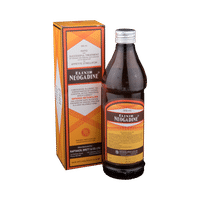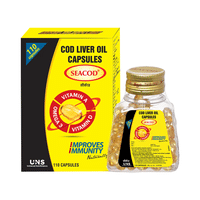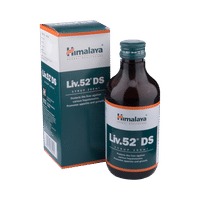Aciban L 75 mg/40 mg Capsule

Rs.129for 1 strip(s) (10 capsules each)
food interaction for Aciban L
alcohol interaction for Aciban L
pregnancy interaction for Aciban L
lactation interaction for Aciban L
food
alcohol
pregnancy
lactation
Aciban L 75 mg/40 mg Capsule is to be taken empty stomach.
Take it preferably 30 minutes before food.
None
Take it preferably 30 minutes before food.
None
CAUTION
Aciban L 75 mg/40 mg Capsule may cause excessive drowsiness with alcohol.
UNSAFE
Aciban L 75 mg/40 mg Capsule is unsafe to use during pregnancy as there is definite evidence of risk to the developing baby. However, the doctor may rarely prescribe it in some life-threatening situations if the benefits are more than the potential risks. Please consult your doctor.
CONSULT YOUR DOCTOR
Aciban L 75 mg/40 mg Capsule is unsafe to use during breastfeeding. Data suggests that the drug may cause toxicity to the baby.
UNSAFE
SALT INFORMATION FOR Aciban L
Levosulpiride(75mg)
Uses
Levosulpiride is used in the treatment of gastroesophageal reflux disease (acid reflux), irritable bowel syndrome, heartburn, schizophrenia and depression.
How it works
Levosulpiride is a atypical antipsychotic. It works by increasing the release of acetylcholine (a chemical messenger). This increases the movement of stomach and intestines, and prevents reflux (acid going up to the food pipe).
Common side effects
Increased prolactin level in blood, Extrapyramidal symptoms, Weight gain, Akathisia (inability to stay still), Increased liver enzymes, Constipation, Insomnia (difficulty in sleeping), Sedation, Maculopapular rash, Hypotension (low blood pressure), Absence of menstrual periods, Ventricular arrhythmia
Pantoprazole(40mg)
Uses
Pantoprazole is used in the treatment of heartburn, gastroesophageal reflux disease (acid reflux) and peptic ulcer disease.
How it works
Pantoprazole is a proton pump inhibitor (PPI). It works by reducing the amount of acid in the stomach which in turn relieves acid-related indigestion and heartburn.
Common side effects
Diarrhea, Flatulence, Headache, Nausea, Vomiting, Dizziness, Abdominal pain, Blurred vision, Constipation, Joint pain, Injection site reaction, Edema (swelling), Dryness in mouth, Hepatitis (viral infection of liver), Decreased white blood cell count, Low blood platelets, Rash, Red spots or bumps, Fundic gland polyps, Jaundice, Systemic lupus erythematosus, Clostridium difficile associated diarrhea, Change in body weight, Increased triglyceride level in blood, Rhabdomyolysis
SUBSTITUTES FOR Aciban L
106 Substitutes
106 Substitutes
Sorted By
 Rs. 347.95pay 161% more per Capsule
Rs. 347.95pay 161% more per Capsule Rs. 225pay 69% more per Capsule
Rs. 225pay 69% more per Capsule Rs. 178.70pay 34% more per Capsule
Rs. 178.70pay 34% more per Capsule Rs. 219pay 63% more per Capsule
Rs. 219pay 63% more per Capsule Rs. 209pay 57% more per Capsule
Rs. 209pay 57% more per Capsule
Expert advice FOR Aciban L
- Take it as per dose and duration suggested by your doctor.
- Levosulpiride may cause dizziness. Do not drive or do anything that requires mental focus until you know how this medicine affects you.
- Consult your doctor if you are pregnant, planning to become pregnant or breastfeeding.
- Consult with your doctor immediately if you have absence if periods, abnormal milk secretion or changes in sexual desire, fever, muscle stiffness.
Frequently asked questions FOR Aciban L
Levosulpiride
Q. Is levosulpiride safe?
Levosulpiride is safe if used at prescribed doses for the prescribed duration as advised by your doctor
Q. Is levosulpiride an antidepressant?
No, it is used in the treatment of gastro-oesophageal reflux disease, irritable bowel syndrome, psychosis, dyspepsia
Q. What is levosulpiride?
Levosulpiride belong to class of medication called as atypical antipsychotics. It acts by decreasing the activity of dopamine in the brain
Pantoprazole
Q. What is Pantoprazole used for?
Pantoprazole is used for the treatment of peptic ulcer disease, reflux esophagitis or gastroesophageal reflux disease (GERD). Pantoprazole prevents acidity associated with use of painkillers. It is also used to treat a disease associated with excessive acid production in the stomach known as Zollinger Ellison syndrome (ZES). It works by reducing the amount of acid made by your stomach and thus relieves your symptoms.
Q. How long does it take for Pantoprazole to work?
You should start to feel better within 2 to 3 days. It may take up to 4 weeks for Pantoprazole to work properly so you may still have some symptoms during this time.
Q. Is Pantoprazole safe?
Yes, Pantoprazole is relatively safe. Most of the people who take Pantoprazole do not get a side effect. It is advised to be taken as directed by the doctor for maximum benefits.






















